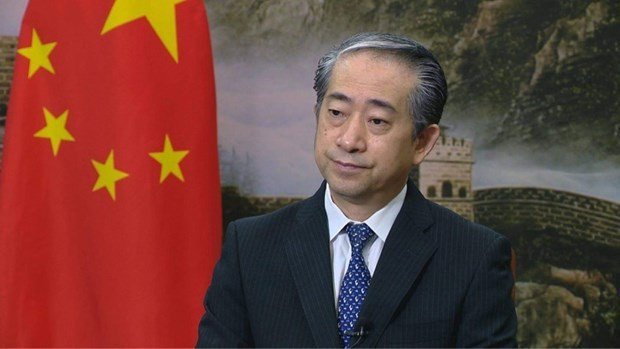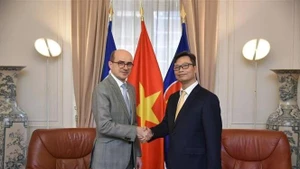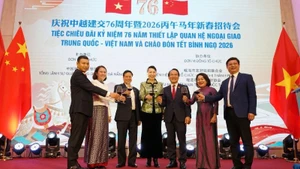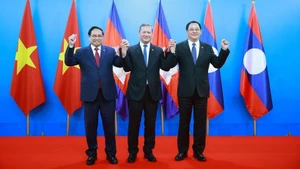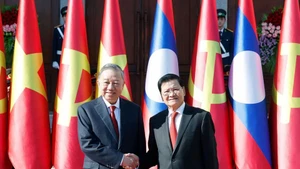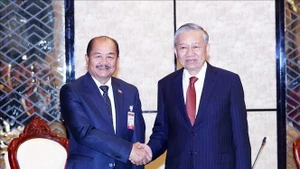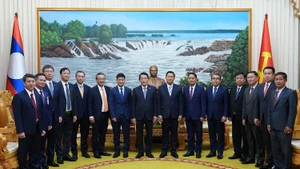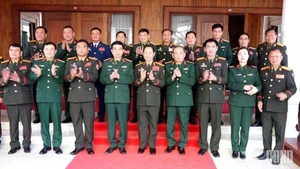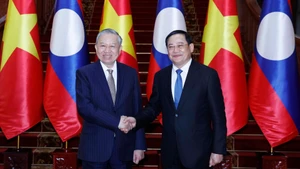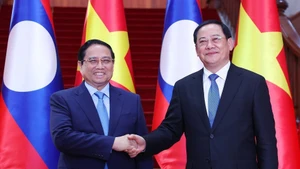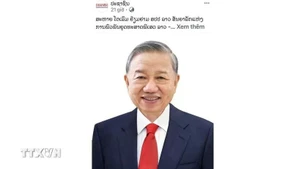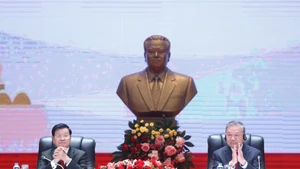The diplomat told the local press in a recent interview that the potential for bilateral cooperation in these sectors is substantial, as the two nations are each other’s important economic, trade, and investment partners.
According to him, their synergy in trade-investment collaboration is conducive to the establishment of stable and sustainable supply chains. Furthermore, their status of being newly emerging economies with rapid and robust development rates further amplifies the significant contributions of their bilateral cooperation in maintaining regional and global peace, stability, and development.
The ambassador disclosed that Vietnam and China are intensifying efforts to promote the Lao Cai-Hanoi-Hai Phong railway project connecting Yunnan in China to Vietnam's border, which is currently in the stage of feasibility study report.
He stated China is ready to meet Vietnam's requirements and utilise preferential funding to help it plan the upgrade and rebuilding of the Bac Giang-Dong Dang-Hanoi railway line, as well as carry out the next phase of planning for the Mong Cai-Quang Ninh-Hai Phong railway.
Upon completion and becoming operational, these railway lines are expected to significantly enhance the efficiency of cargo transport between the two countries, reducing border gate congestion, he said. Additionally, both countries are implementing a pilot smart-customs programme at the Huu Nghi border gate, aiming for around-the-clock efficient automated customs procedures. These railways, when completed, will open economic corridors linking Vietnam to Central Asia, and even Europe via China, shortening the distance between Vietnam and Central Asia and turning the northern border provinces of Vietnam into a gateway to the north.
On people-to-people diplomacy, Xiong emphasised the importance of enhancing the two peoples' mutual understanding, support, and deep engagement in the nations' cooperation. He noted that the scale of mutual visits between Vietnamese and Chinese citizens remains modest compared to their populations.
Top leaders of both Parties have been highly valuing the strengthening of people-to-people exchanges and underscoring the need to enhance the bilateral friendship, the ambassador stated.
Xiong suggested that cultural and artistic activities also serve as effective bridges to enhance mutual understanding between Vietnamese and Chinese peoples, particularly the younger generations. In fact, Vietnamese youth enjoy Chinese films, television programmes, while Vietnamese artists taking part in popular Chinese shows are a favour of young Chinese, having millions of fans in China.
He expressed his hope that the media of both countries will continue to positively and comprehensively popularise the exchanges and friendly cooperation between the sides’ sectors and localities, as well as the significant achievements they have attained. This, he believed, will further deepen the understanding between the two peoples.
